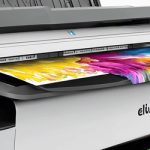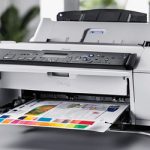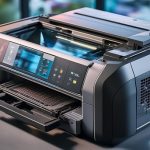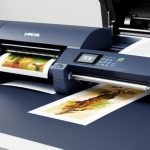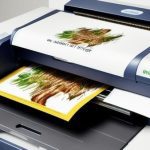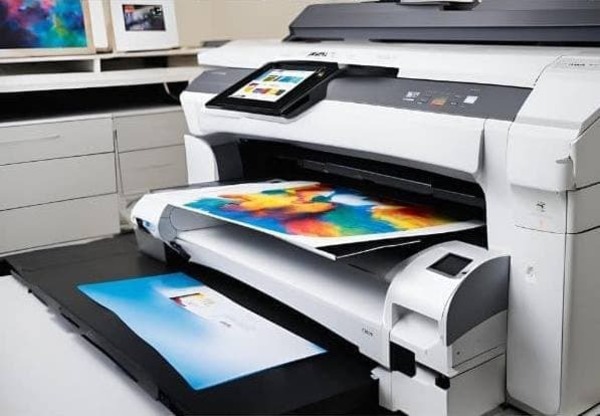
Understanding Videojet Printers
A Videojet printer is a specialized type of industrial printing equipment designed for coding and marking applications. These printers are widely used in industries such as food and beverage, pharmaceuticals, cosmetics, automotive, electronics, and more to print essential information like expiration dates, batch numbers, barcodes, logos, and other traceability data directly onto products or packaging. Videojet printers are renowned for their reliability, speed, and ability to print on a variety of surfaces, making them an indispensable tool in manufacturing and packaging processes.
The term “Videojet” refers to both the brand (Videojet Technologies) and the range of printers offered by the company. Videojet Technologies is a global leader in the coding, marking, and printing industry, with decades of expertise in delivering innovative solutions for product identification. Their printers are known for integrating advanced technology to meet the rigorous demands of industrial environments while ensuring compliance with regulatory standards.
Key Features of Videojet Printers
Videojet printers are designed to deliver precision, efficiency, and flexibility. Here are some of the key features that make these printers stand out:
1. **High-Speed Printing**
Videojet printers can operate at extremely high speeds, making them ideal for fast-paced production lines. For instance, continuous inkjet (CIJ) printers from Videojet can print up to 1,000 characters per second, ensuring that production is never slowed down due to coding or marking requirements.
2. **Versatile Substrate Compatibility**
These printers can print on a wide variety of materials, including plastic, glass, metal, cardboard, paper, and even flexible packaging. This versatility ensures that manufacturers can use Videojet printers regardless of the type of product or packaging material they use.
3. **Advanced Ink Formulations**
Videojet offers a broad portfolio of inks designed for different applications and environments. These include fast-drying inks, food-safe inks, UV-readable inks for security purposes, and heat-resistant inks for applications involving sterilization or high-temperature processes.
4. **Non-Contact Printing**
Most Videojet printers use non-contact printing methods such as continuous inkjet (CIJ) or laser marking. This ensures that the printing process does not damage delicate products or disrupt the production flow.
5. **Ease of Integration**
Videojet printers are designed for seamless integration into existing production lines. They feature compact designs, user-friendly interfaces, and connectivity options that enable them to work in tandem with other equipment on the line.
6. **Compliance with Industry Standards**
Manufacturers are often required to comply with strict regulations regarding product labeling and traceability. Videojet printers help ensure compliance by providing accurate and durable codes that meet industry standards.
Types of Videojet Printers
Videojet offers a range of printers tailored to different applications and industries. Here is an overview of the main types:
1. **Continuous Inkjet Printers (CIJ)**
CIJ printers are one of the most commonly used types of industrial printers due to their speed, reliability, and ability to print on almost any surface. These printers work by ejecting a continuous stream of ink droplets through a nozzle and deflecting specific droplets to form characters on the substrate.
Applications:
- Printing expiration dates on food and beverage packaging
- Marking batch codes on pharmaceuticals
- Printing alphanumeric codes on automotive parts
2. **Thermal Inkjet Printers (TIJ)**
TIJ printers use heat to expel tiny droplets of ink from nozzles onto the substrate. They are ideal for high-resolution printing on porous and non-porous surfaces.
Applications:
- Printing barcodes and QR codes
- Marking variable data on cartons or labels
- Creating high-quality graphics on packaging
3. **Laser Marking Systems**
Laser marking systems use a focused laser beam to etch or mark codes onto surfaces without using ink or consumables. This method produces permanent marks that are highly resistant to abrasion, chemicals, and heat.
Applications:
- Marking serial numbers on electronic components
- Engraving logos on metal or glass surfaces
- Creating tamper-proof codes for security applications
4. **Thermal Transfer Overprinters (TTO)**
TTO printers use a heated ribbon to transfer ink onto flexible packaging materials like film or foil. They are widely used in industries that require high-resolution variable data printing on packaging.
Applications:
- Printing nutritional information on food packaging
- Marking production dates on pharmaceutical blister packs
- Printing variable text or graphics on flexible films
5. **Large Character Marking (LCM) Printers**
LCM printers are designed for printing large alphanumeric codes or graphics directly onto secondary packaging materials like corrugated boxes.
Applications:
- Printing shipping information on cartons
- Marking branding or handling instructions on boxes
- Creating readable markings for warehouse management systems
Advantages of Using Videojet Printers
Videojet printers offer several benefits that make them an excellent choice for industrial applications:
Enhanced Productivity
With their high-speed capabilities and minimal downtime requirements, Videojet printers help manufacturers maintain efficient production schedules.
Cost-Effectiveness
Advanced ink formulations and energy-efficient designs reduce operating costs while maximizing output quality.
Regulatory Compliance
Videojet printers ensure that products meet regulatory requirements for labeling and traceability, reducing the risk of non-compliance penalties.
Durability and Reliability
These printers are built to withstand harsh industrial environments and deliver consistent performance over time.
Conclusion
In summary, Videojet printers are a critical component in modern manufacturing and packaging industries due to their ability to provide fast, reliable, and high-quality coding and marking solutions across various substrates and environments. Whether you need to print expiration dates on food products or engrave serial numbers on electronics, Videojet offers a printer tailored to your specific needs.
